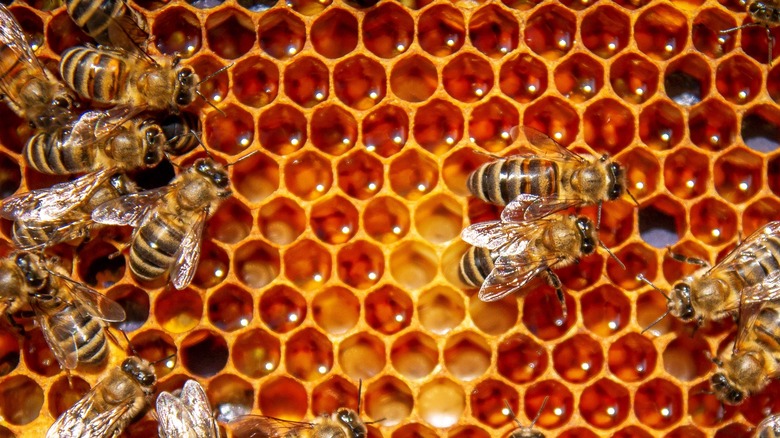New Research Finds This Natural Sweetener Can Help Improve Heart Health And Blood Sugar Levels
Everyone likes something sweet now and then, but sweeteners aren't necessarily good for you. An often-overlooked natural sweetener may be changing the game, though.
Generally, sweeteners aren't very healthy as they can stimulate your appetite and increase your caloric intake, leading to health issues such as obesity, per Cleveland Clinic. There are natural and artificial options, some of which contain no sugar while others are still calorically dense. Choosing the right one for you can help determine whether your blood sugar is in control as sugar content directly affects blood sugar and is a significant aspect of diabetes, reports the Centers for Disease Control and Prevention.
When blood sugar levels get outside the target range, they can lead to kidney disease, heart disease, and vision loss, among other things. High levels occur for various reasons, such as being sick, stressed, or overeating. To manage out-of-control blood sugar levels, you may have to take medication, stick to a strict diabetic-friendly meal plan and regularly monitor your levels.
However, there is a new food to consider for helping control those blood sugar levels, and it may give your heart a healthy boost as well. Surprisingly, it comes in the form of a sweetener.
Honey may help improve health markers
Honey is made when bees collect nectar from flowers and store it as food in their honeycomb, where it is broken down into simple sugar (via the National Honey Board). The air from the bees' wings then helps to evaporate the liquid and turn it into honey. Bees make excess, so humans extract it from the comb, strain it and eat it. According to the American Heart Association, we've long known that honey contains antioxidants, but otherwise, its nutritional profile isn't that impressive. A tablespoon of honey contains 64 calories, no fiber, scant protein, and few other health benefits. A new study found, however, that honey does have other beneficial properties.
This new study tested the effects of honey after consumption on 1,105 participants for a median time of eight weeks. Researchers found that honey reduced glucose levels, LDL-C, or "bad" cholesterol, and triglycerides while increasing HDL-C, or "good" cholesterol. They discovered that the types of honey consumed from robinia and clover sources had more pronounced positive effects. Additionally, raw honey had a better effect on markers than processed honey. The study raises questions about whether honey is more than a sweetener. In a press release, Tauseef Khan, a senior researcher on the study and a research associate in nutritional sciences at U of T's Temerty Faculty of Medicine, said, "We're not saying you should start having honey if you currently avoid sugar... if you're using table sugar, syrup or another sweetener, switching those sugars for honey might lower cardiometabolic risks."


